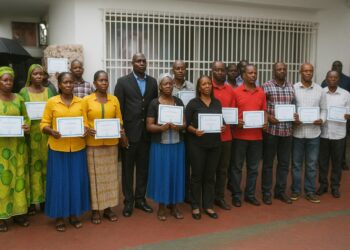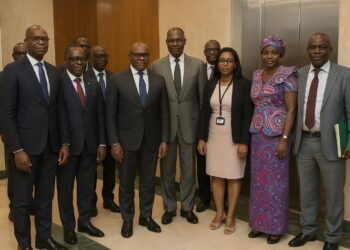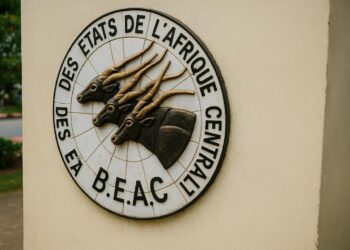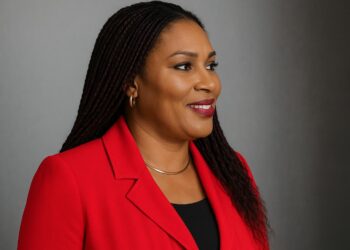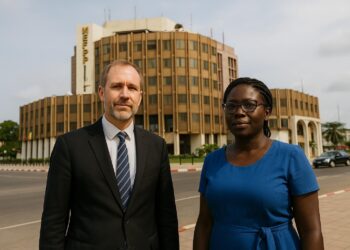Casablanca positions itself as an African finance nerve-centre
On 3 and 4 November 2025, Casablanca will convert its waterfront district into a rendez-vous for Africa’s leading financial strategists. The Africa Financial Summit enters its fifth edition with an unprecedented constellation of officials, bankers and investors intent on shaping the continent’s economic sovereignty.
Summit chair Amir Ben Yahmed insists the event’s informality is deliberate. He argues that a pragmatic, deal-oriented atmosphere helps participants translate speeches into transactions, anchoring the notion that Africa can finance its own priorities without relying excessively on external capital.
Monetary chiefs weigh inflation and coordination
Ministers and governors will open proceedings by comparing policy levers. Moroccan finance minister Nadia Fettah and Bank Al-Maghrib governor Abdellatif Jouahri aim to showcase the kingdom’s price-stability framework as foreign pressures linger.
Jean-Claude Kassi Brou of the BCEAO and Johnson P. Asiama of the Bank of Ghana will test the appetite for closer coordination across West Africa’s currency unions, where disinflation efforts meet volatile commodity revenues.
From Central Africa, Congo-Brazzaville’s finance minister Christian Yoka plans to underline budget resilience in economies still sensitive to oil cycles, a theme echoing through several plenary debates.
Development financiers call for domestic capital mobilisation
International Financial Corporation chief Makhtar Diop believes pensions, insurers and sovereign funds can become the backbone of Africa’s long-term capital stack. He will detail mechanisms designed to crowd in these pools while keeping governance standards high.
Serge Ekué of the West African Development Bank and Heike Harmgart of the European Bank for Reconstruction and Development’s Sub-Saharan arm intend to promote blended-finance tools that reduce risk for local lenders yet preserve market discipline.
Both emphasise that deepening regional debt markets and digital registries can lower issuance costs, offering governments a sustainable alternative to hard-currency borrowing.
Private banking leaders embrace digital acceleration
Ecobank Group’s Jeremy Awori considers the mobile wallet revolution irreversible. His keynote will map out cross-border payment corridors capable of shrinking settlement times from days to seconds.
FirstBank Group acting chief Olusegun Alebiosu will showcase credit-scoring algorithms adapted to informal-sector data, arguing that culturally attuned models can unlock mass retail lending while controlling risk.
African Guarantee Fund head Jules Ngankam, together with ECOWAS Bank for Investment and Development president Dr George Agyekum Donkor, will advocate guarantee schemes that de-risk loans to small and medium enterprises, granting them access to the same digital rails as large corporates.
Investor Aigboje Aig-Imoukhuede, now chairing Coronation Group, plans to illustrate how capital-market listings can coexist with fintech agility, signalling a maturing ecosystem rather than a binary choice.
Morocco showcases hub infrastructure and regulatory depth
By hosting AFIS, Morocco seeks to underscore Casablanca Finance City’s capacity to anchor pan-African operations. Exchange CEO Tarik Senhaji and Bank of Africa executive Brahim Benjelloun-Touimi will describe post-trade upgrades meant to align with global standards.
Insurance supervisor Abderrahim Chaffai, payments pioneer Abdeslam Alaoui Smaili of HPS and reinsurer Atlantic Re’s Ouafae Mriouah will highlight how rule-making flexibility allows swift deployment of emerging products, from green bonds to parametric cover.
Industrial leader Mohamed Hassan Bensalah of Holmarcom argues that a diversified domestic corporate base gives Casablanca the real-economy depth necessary for a credible hub, bridging North African savings with sub-Saharan demand.
Sovereignty and pragmatism anchor the summit’s ethos
Speakers converge on a single message: Africa must elevate its negotiating power by strengthening domestic levers first. This includes nurturing transparent governance and predictable regulation capable of matching investor expectations.
International observers note the summit’s shift from protocol to action. Panels are shorter, case studies richer and bilateral rooms permanently booked, suggesting a collective appetite for deliverables rather than declarations.
Vice-president Africa of the IFC, Ethiopis Tafara, sums up the ambition, stating that a private-sector-led growth model becomes credible only when backed by institutions willing to shoulder risks and share rewards locally.
As closing bells ring, organisers expect Casablanca to leave participants with a blueprint marrying macro stability, technological leapfrogging and regional integration—an equation many see as essential for lasting financial sovereignty across the continent.


































